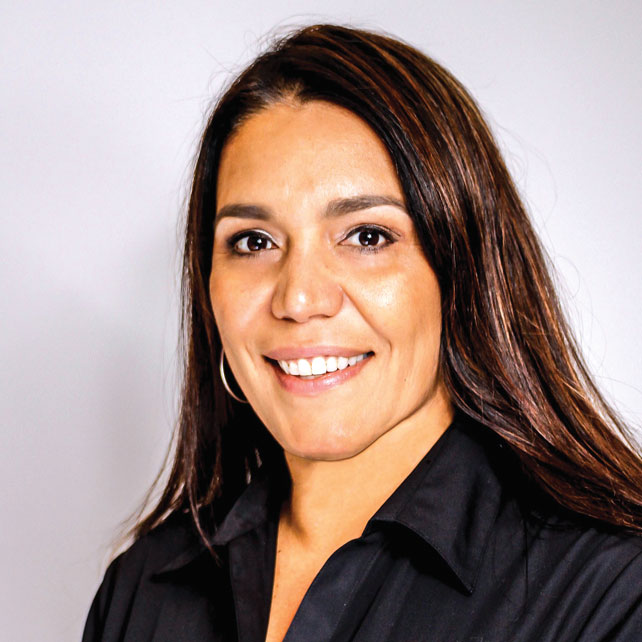
Janine Mohamed
ALUMNI AWARD RECIPIENT 2016
CEO, Congress of Aboriginal and Torres Strait Islander Nurses and Midwives
Bachelor of Nursing
Janine Mohamed always describes herself as a proud Narrunga Kaurna woman from Point Pearce in South Australia. That is not only historically and geographically accurate, it is perhaps the best way to understand what motivates her and has shaped her life.
Information correct at the time of receiving the award
“I was raised by my grandmother, aunties, uncles and community to value education and a good hard day’s work, to use every opportunity to its full potential and to never forget where I came from,” she wrote recently. “This led me to make my career choices very carefully and to always use this as a touchstone: ‘Is what I am doing positively affecting the Aboriginal community? Am I being true to myself and what I believe’?”
Those who know Janine, or at least her work, would have no hesitation in stating that she is always true to herself and has had a very significant effect on a great many Aboriginal and Torres Strait Islander people.
For two decades she has been a part of the Indigenous health sector in nursing, management or policy roles, in organisations as different as Adelaide’s Women’s and Children’s Hospital, the Aboriginal Research Institute and the Aboriginal Health Council of SA. Internationally, Janine has been part of delegations representing the Aboriginal Health Sector at the United Nations Permanent Forum on Indigenous Issues. For the past three years she has been CEO of the Congress of Aboriginal and Torres Strait Islander Nurses and Midwives (invariably known as CATSINaM).
She jokes about being “an accidental CEO” who was “talked into” applying for the job by those in her community who knew she’d be good at it. “It’s similar to the way a lot of Aboriginal and Torres Strait Islander people come into these sort of roles,” she said. “You win it on merit but you don’t choose the role or the profession; it is selected for you.”
The appointment is something of a homecoming, as Janine joined CATSINaM as a new career nurse. She had used the money from a State Government award to attend its first conference and remembers the sense of renewal she had being around other indigenous nurses – something of a novelty back then.
CATSINaM was created both to improve recruitment and retention of indigenous nurses and to give non-indigenous nurses a grounding in the history and culture needed to provide culturally safe and respectful care. Janine also remembers arriving at UniSA as the first member of her family to start university. “I still have spring mornings where I smell the air and think back to my first day on the Underdale campus,” she said.
She chose UniSA after being impressed by the genuine commitment to affirmative action she felt during an earlier visit to the then SA Institute of Technology. Her advice to any new student is to seek out support structures and find role models and mentors. The list of those who inspired her is long, and now she is inspiring others.
“I have a passion for fostering our Aboriginal and Torres Strait Islander health workforce, starting with getting kids to believe that they can have a career in health,” she said. “In fact, they are really needed.
“The biggest issues facing our kids are the same as they were for me: racism and lack of self-belief. The only way we are going to eradicate racism is through education; education of non-Aboriginal and Torres Strait islander people in cultural safety and respect, education of our kids so that they flood our workforces and become leaders.
“Educating our leaders as to how to embed this concept into systems so that it’s not reliant on individuals. I believe with all my heart that nursing and midwifery will lead the way in this concept. The will to do this work by both Aboriginal and Torres Strait Islander peoples within our professions has been inspiring.”




